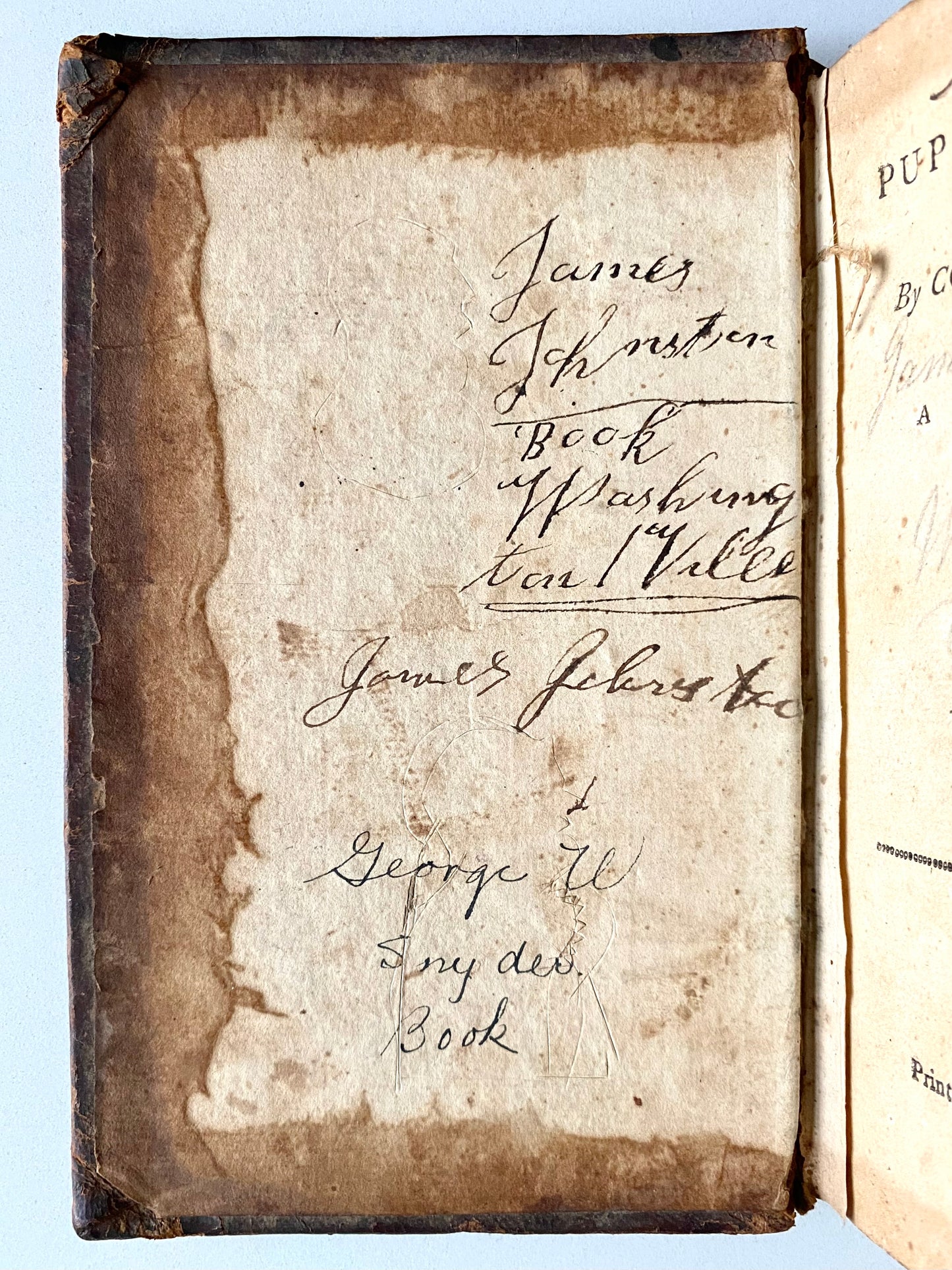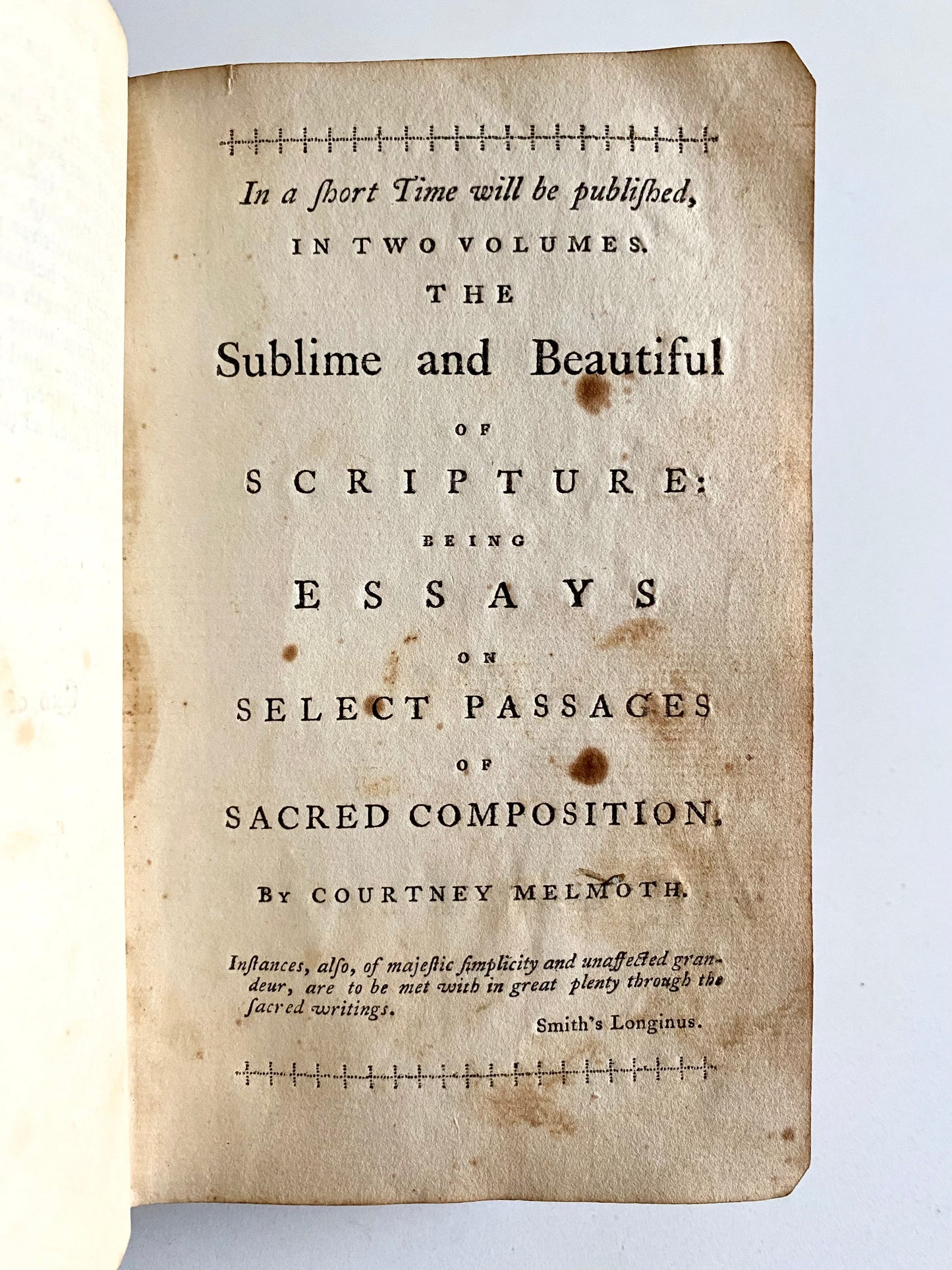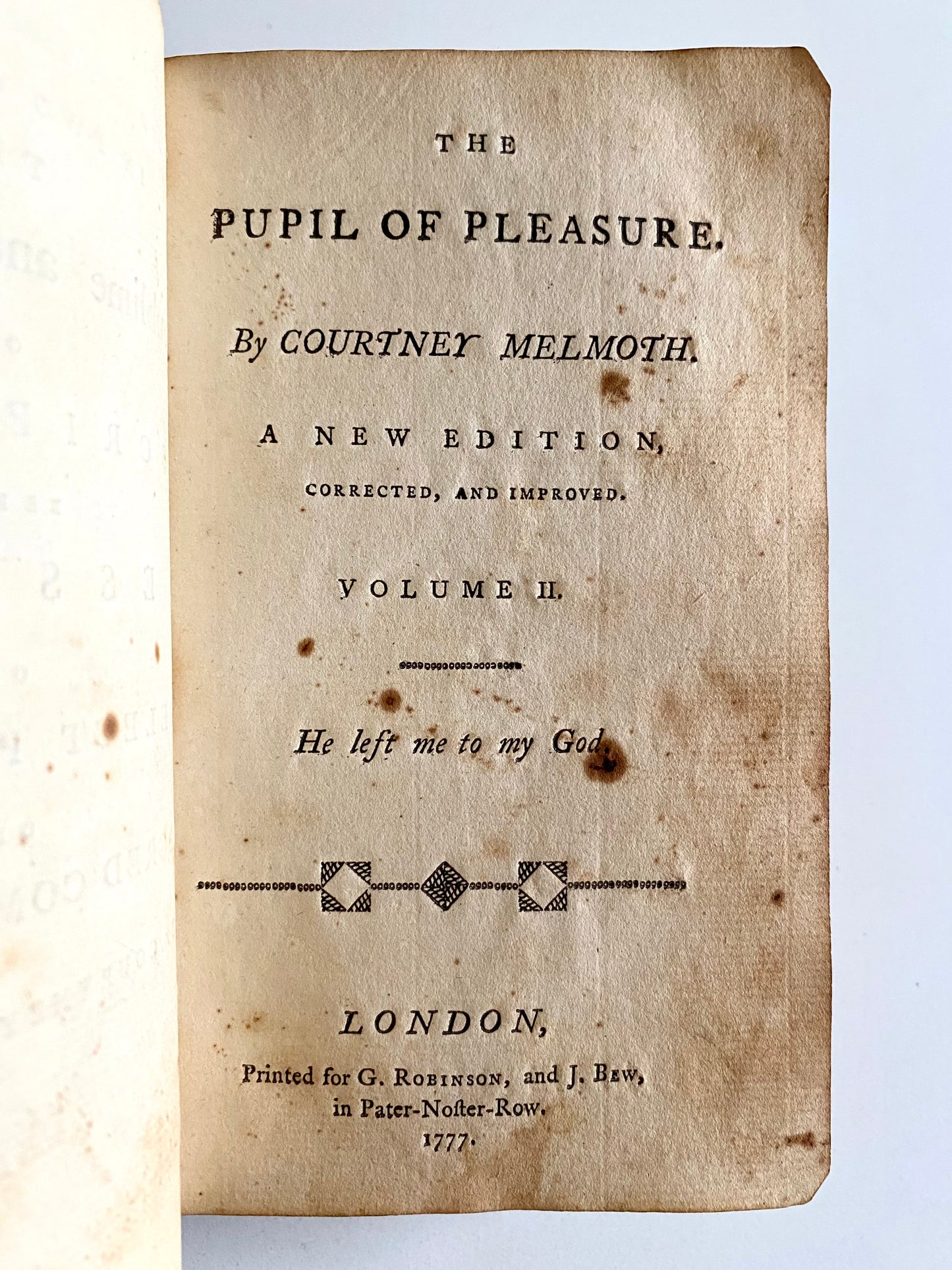Specs Fine Books
1777 SAMUEL JACKSON PRATT. Clergyman Leaves Ministry to Write 18th Century Erotica. Washington D.C. Provenance.
1777 SAMUEL JACKSON PRATT. Clergyman Leaves Ministry to Write 18th Century Erotica. Washington D.C. Provenance.
Couldn't load pickup availability
Fascinating second edition of the Samuel Jackson Pratt work that shocked the 18th century as the man who had been a preacher of some renown, bit who was now publishing a work considered even by many atheists to be licentiousness and debauchery.
The present edition contains the rare single sheet advert for an upcoming publication, The Sublime and the Beautiful of Scripture; Being Essays on Select Passages of Sacred Composition. Pratt attempted to publish something sacred in order to retrieve his reputation. He never issued it and he died in moral ignominy.
An interesting copy signed multiple times by a James Johnston of "Washington Ville," which was used to describe Washington D. C. in the late 18th century. It was also used of a town in New York, but there is a faint pencil inscription on the title which appears to say "Columbia," potentially clearing up the reference.
Melmoth, Courtney [Pseud. Samuel Jackson Pratt]. The Pupil of Pleasure. A New Edition. Corrected and Improved. London. Printed for G. Robinson, and J. Bew, in Pater-Noster-Row. 1777. 109 + 121pp.
Samuel Jackson Pratt (25 December 1749 – 4 October 1814) was a prolific English poet, dramatist and novelist, writing under the pseudonym of "Courtney Melmoth" and one of the purveyors of 18th century licentiousness that we might think of in the 20th century as being associate with D. H. Lawrence and his Lady Chatterley’s Lover or Fifty Shades of Gray. Tame by comparison, Pratt embodied the sexual liberation of the 18th century “enlightenment.” Ironically, he had at first been a clergyman.
He authored around 40 publications between 1770 and 1810, some of which are still published today and is probably best remembered as the author of Emma Corbett: or the Miseries of Civil War (1780) and the poem Sympathy (1788).
His reputation was repeatedly tainted by scandal during his lifetime, he is today remembered first English writer to treat the American Revolution as a legitimate subject for literature.
Educated at Felsted in Essex, Pratt was ordained as a Church of England clergyman. His first published writing, as "Rev Mr Pratt of Peterborough" was an elegy, entitled Partridges, published in 1771, which appeared in popular poetry collections through most of the 19th century. He was at the time described as “an esteemed and popular preacher,” but by 1773 had become entangled in a scandalous love affair and left the church to become an actor under the stage name “Courtney Melmoth," the pseudonym used for the current work.
Some time in the early 1770s, Pratt entered into a marital-like relationship with a lady who thereafter referred to herself as "Mrs Charlotte Melmoth". Her maiden name is unknown. According to A History of The City of Brooklyn, Charlotte "had been duped into a sham marriage, while at boarding school, by a Mr. Pratt (already known in the literary and theatrical circles of that day as Courtney Melmoth ), and with him went upon the stage, playing in several companies both in England and Ireland." Pratt's parents strongly disapproved of the relationship and it is not known whether or not the marriage was ever legally formalised. The couple toured together in theatrical productions, unsuccessfully, and eventually had to resort to telling fortunes to make their living.
It is also believed the woman was much younger than Pratt, and likely the muse for the current work, The Pupil of Pleasure.
Fascinatingly, by 1777 the couple were well-known in ethically liberal circles. While in Paris, they met Benjamin Franklin who lent the couple money which they struggled to repay. Charlotte, like Pratt, considered herself a poet, and Pratt sent Franklin copies of some of his wife's poetry.
Unsurprisingly, by 1781 the couple had separated and Charlotte embarked on a solo acting career. In 1793 she emigrated to America where she gained a reputation as "The Grande Dame of Tragedy on the Early American Stage". The couple would never meet again.
The relationship was to taint Pratt's reputation with the reading public as indicating a dubious moral character; one obituary published after his death tactfully refers to the relationship as "such indiscretions as too frequently accompany genius"; others simply omit any reference to his marriage altogether.
Alone with his marriage, the current work, first issued in 1776, added to the scandal. The work satirizes Lord Chesterfield [presumably a stand-in for himself]. The Pupil of Pleasure describes a fictional series of seductions in Buxton. Its licentious tone evoked letters of complaints, the author being described as "a dissipated clergyman" and the Monthly Review magazine said of it "It is unnatural and shocking – it cannot be read without disgust.”
Critical reception to Pratt's works was mixed during his lifetime. His scandalous "sham marriage" and the public furor over his "unnatural and shocking" novel The Pupil of Pleasure irreparably damaged his reputation, giving him a “dubious moral character” which deterred respectable readers.
Original full calf, raised bands, some rubbing at extremities, but an attractive volume. Some foxing and handling, blank ffep lacking. Title is the first leaf.
Share






















